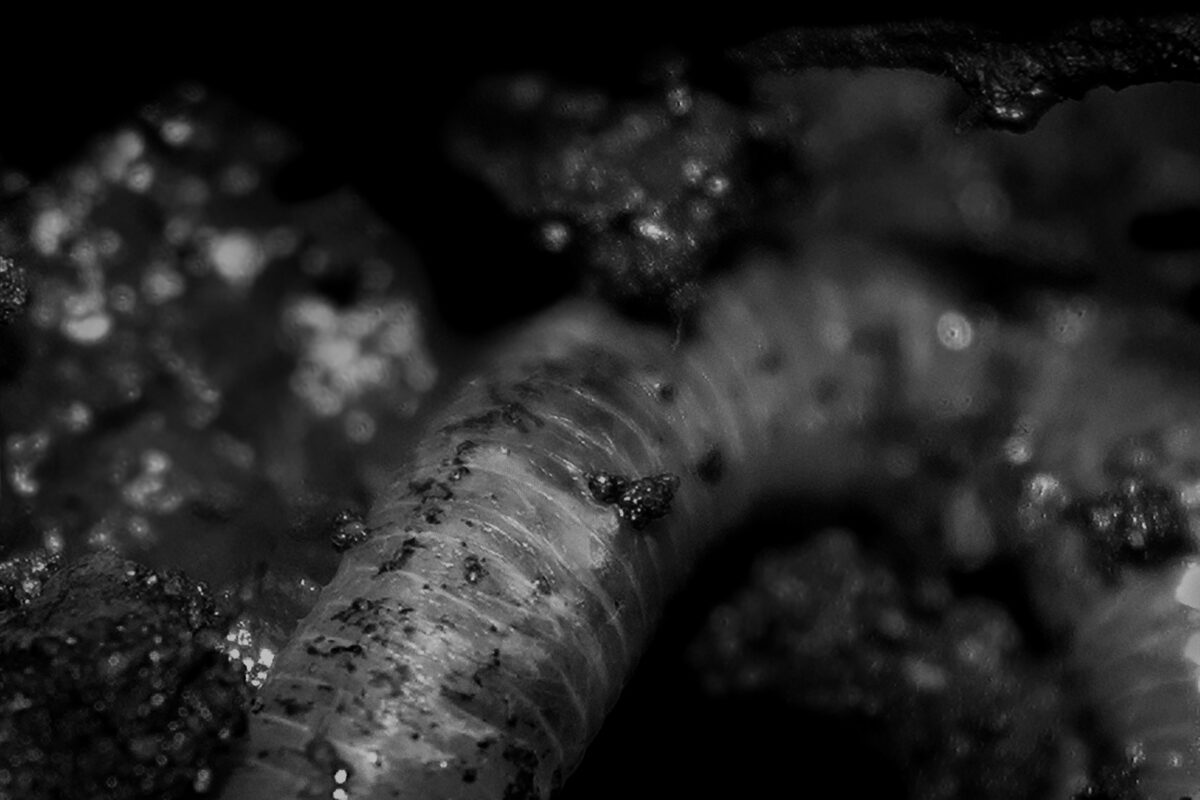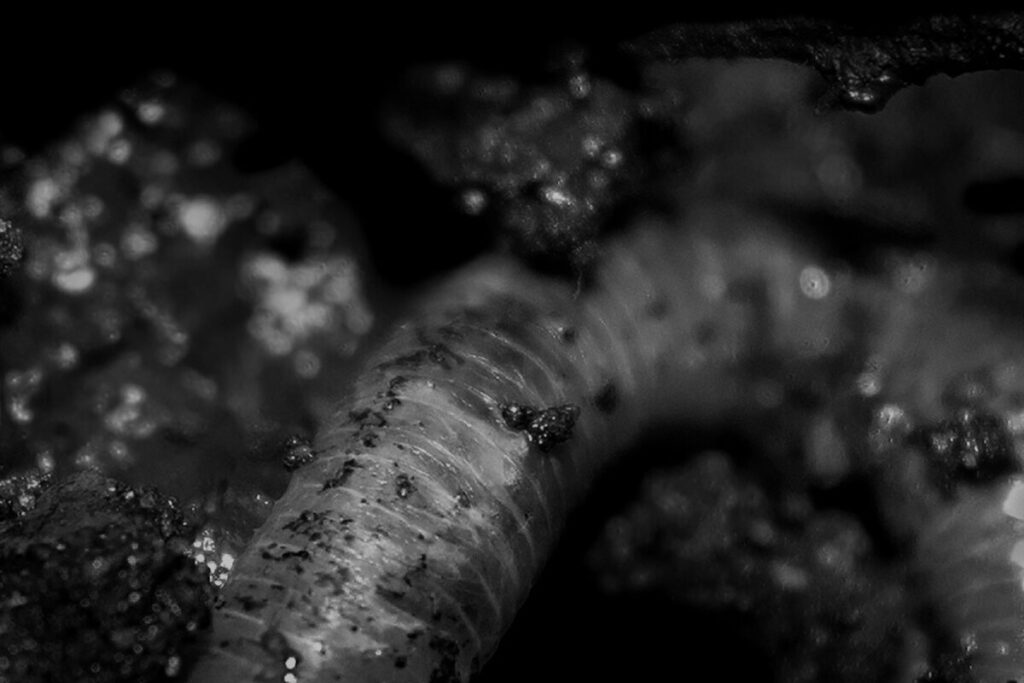
un luogo
che somiglia
a una
compostiera
da cucina

Il sito nasce dal bisogno di raccogliere e tradurre le voci e le tematiche che stanno emergendo nel vasto mondo dell’attivismo, della militanza, dell’impegno civico e in alcune galassie culturali. Come le nostre, sono voci che, dopo molti anni di ricerca e attivismo, si interrogano sull’efficacia e sulla postura della propria azione nel-con il mondo.
Uno degli enzimi (e forse degli effetti collaterali dell’irruzione di Gaia in forma di virus) che ci ha spinto a immaginare questo spazio cibernetico è Bayo Akomolafe*. Sua è la proposta della parola postactivism che dà il nome al sito e che deriva, secondo la sua formulazione, dalla contrazione di “compost-activism”. Compostare significa consentire e favorire l’ecologia dei processi metabolici alla base del fare-essere-terrestre, processi dove la ricchezza nutritiva è proporzionale alla diversità.
I “post-qualcosa”, come superamento lineare di un “prima”, non sono mai esistiti: è una fallacia discorsiva che non dà conto delle mutazioni tautologiche e delle persistenze e continua a zavorrare un presente con i codici di un passato non-digerito. Postattivismo non significa, quindi, un “dopo”, un’evoluzione lineare secondo i criteri della modernità. Non significa la dismissione di quanto, come attivist3, conosciamo e facciamo. Non è un’altra ricetta, un’ulteriore narrativa o un nuovo manifesto.
Postattivismo è sostare con le domande senza rincorrere risposte soluzioniste: lasciarle fermentare, lasciarle agire come lieviti. Un ‘rallentamento’ (slowing down) non come funzione della velocità, ma come funzione dello sguardo e dell’indagine. Interrogarsi sul luogo, sulla epistemologia, sul mindset dal quale stiamo guardando il mondo. Chiedersi se, come e quando la nostra reazione al sistema rafforza il sistema; se le nostre rivendicazioni di giustizia (sociale, ambientale, ecc.) non siano ascrivibili alla stessa architettura che genera l’ingiustizia; se sta in capo solo a noi Sapiens il fardello, l’agentività crea-attiva di fare-mondo.
postattivismo è la creolizzazione dell’agentività, è una dis-abilità, un modo queer di fare con-nel-del mondo, i nostri corpi che hanno bisogno di fare qualcos’altro per prosperare, un invito a pensare al di là dei nostri confini immediati, a farsi altri e ulteriori tipi di domande sulle cose che ci preoccupano – Bayo Akomolafe
Pensiamo sia tempo di umiltà, di farci humus, come dice Donna Haraway, e compostare i nostri spigoli per avanzare proposte che non replichino i paradigmi della modernità e delle sue aberrazioni. Un lavoro che ha a che fare con la nostra antropologia, la storia profonda e ribaltamenti di prospettiva che necessitano di epistemologie ibride decoloniali.
Auspichiamo che i contenuti e gli/le autori/autrici che proporremo possano moltiplicare il microbioma intestinale, invitare a dialoghi e riflessioni all’interno di gruppi e comunità, stimolare assemblaggi e alleanze nonumane, toccare un mondo immensamente vitale e sorprendente.
The website was born from the need to collect and translate the voices and issues that are emerging in the vast world of activism, militancy, civic engagement and in some cultural galaxies. Like ours, they are voices which, after many years of research and activism, are questioning the efficacy and posture of their own action in-with the world
One of the enzymes (and perhaps the side effects of the irruption of Gaia in the form of a virus) that prompted us to imagine this cybernetic space is Bayo Akomolafe*. His is the proposal of the word postactivism which gives the name to the website and which derives, according to his formulation, from the contraction of “compost-activism”. Composting means allowing and promoting the ecology of the metabolic processes at the base of earth-being-making, processes where the nutritional richness is proportional to the diversity.
The “post-somethings”, as a linear overcoming of a “before”, have never existed: it is a discursive fallacy that does not take account of tautological mutations and persistencies, and continues to ballast a present with the codes of an un-digested past. Post-activism therefore does not mean an “after”, a linear evolution according to the criteria of modernity. It does not mean the abandonment of what, as activists, we know and do. It is not another recipe, a further narrative or a new manifesto.
Postactivism is staying with the questions without chasing solutionist answers: letting them ferment, letting them act like leavens. A ‘slowing down’ not as a function of speed, but as a function of gaze and investigation. Questioning the place, the epistemology, the mindset from which we are looking at the world. Asking if, how and when our reaction to the system strengthens the system; if our claims for justice (social, environmental, etc.) are not attributable to the same architecture that generates injustice; if only we Sapiens bear the burden, the cre-active agency of world-making.
postactivism is the creolisation of agency, it is a dis-ability, a queer way of dealing with-in-the-world, our bodies needing to do something else to thrive, an invitation to think beyond our immediate borders, to ask other and further types of questions about the things that worry us – Bayo Akomolafe
We feel it’s time for humility, to make ourselves humus, as Donna Haraway says, and compost our edges to put forward proposals that do not replicate the paradigms of modernity and its aberrations. A work that deals with our anthropology, deep history and perspective shifts that require decolonial hybrid epistemologies.
We hope that the contents and the authors we will propose can multiply the intestinal microbiome, invite dialogue and reflections within groups and communities, stimulate non-human assemblages and alliances, touch an immensely vital and surprising world.
*Bayo Akomolafe è psicologo clinico, docente e autore. Estatico compagno di vita di EJ e padre di Alethea Aanya e Kyah Jayden Abayomi. Nigeriano di discendenza Yoruba, vive tra India e Stati Uniti. È stato consulente per l’UNESCO; è Chief Curator e Direttore Esecutivo di The Emergence Network e ospitato come lecturer in vari atenei in Europa e USA. Per la sua biografia e per come parla di sé si rimanda al suo sito. È autore di numerosi saggi e del libro These Wilds Beyond Our Fences: Letters to My Daughter on Humanity’s Search for Home (North Atlantic Books, 2017) uscito in Italia per Exòrma nel 2023 col titolo Queste terre selvagge oltre lo steccato. Lettere a mia figlia per fare casa sul pianeta.